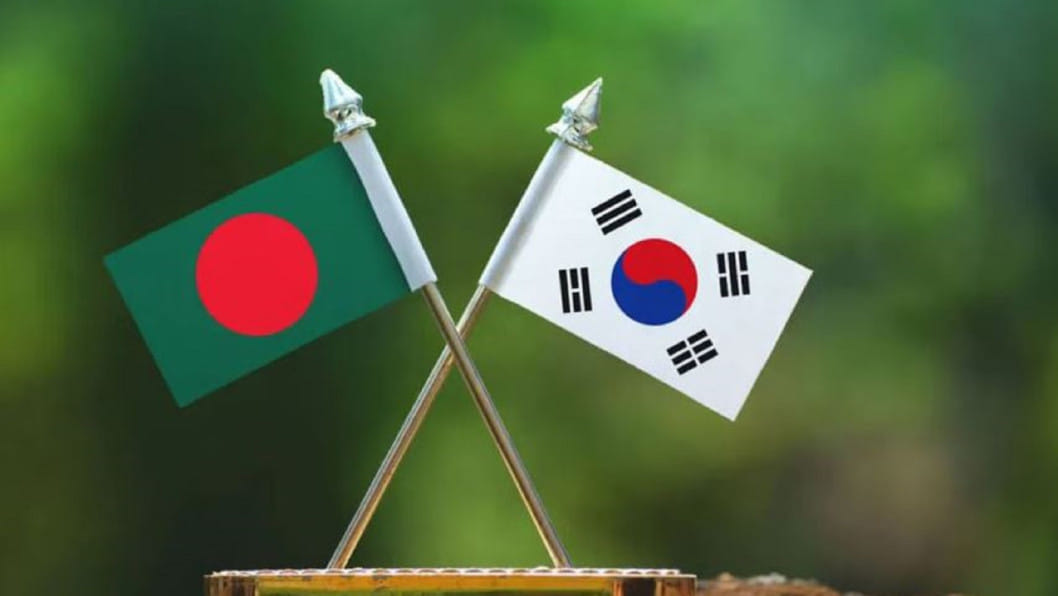Economic partnership deal with S Korea likely by this year

Bangladesh and South Korea are expected to sign an economic partnership agreement (EPA) at the end of this year, said Commerce Secretary Mahbubur Rahman today.
The first round of talks will start at the end of July in Dhaka and around six to seven rounds of negotiations will take place before an EPA can be finalised, he said while addressing a seminar on bilateral investments at Amari Dhaka.
The proposed EPA would include duty rationalisation, investment, regional value addition, trade in services and other components for expanding bilateral trade, the commerce secretary also said.
The seminar was jointly organised by the South Korean embassy in Bangladesh and the Foreign Investors' Chamber of Commerce and Industry (FICCI). Participants included businesspeople, diplomats and government officials of both countries.
Rahman hinted that changes could come about in the country's import policy for the ease of import and trade.
He also hinted that the government may reduce the duty on the import of smartphones in the national budget for fiscal year 2025-26 to curb grey market sales.
Park Young Sik, South Korean ambassador to Bangladesh, in a keynote paper, said Bangladesh was the 35th largest economy in the world and would emerge as the 9th largest in terms of purchasing power in 2030.
Bangladesh is enjoying demographic dividend for its young population, expanding its market on a huge scale, and has a strategic location connecting South Asia and Southeast Asia, he said.
The key task is to unlock Bangladesh's potential, he said.
Zaidi Sattar, chairman of the Policy Research Institute, said Bangladesh has not been able to rationalise its tariff structure over the last 20 years, for which the country was still highly protectionist.
He expects some tariff rationalisation options in the national budget scheduled to be placed today.
Vietnam signed free trade agreements with almost half of the world, for which its annual export value stands at nearly $400 billion, which is close to the country's GDP of $470 billion, he said.
Jung Min, country manager of Samsung Electronics, alleged that the grey market was dominating the trade of smartphones in Bangladesh.
Grey devices evade taxes to get price advantages while simultaneously costing the government revenue, he added.
Jung Ho, chief financial officer of KIDO, a South Korean company with operations in Bangladesh, said his company would raise employee numbers from 4,200 to 10,000 at the Adamjee Export Processing Zone in Narayanganj.
The cost of production in Vietnam is higher than in Bangladesh, he said.
At the seminar, South Korean businesspeople said political and economic instability, road blockades and delays in customs clearance were the major challenges to doing business in Bangladesh.
In 2023, Bangladesh imported goods worth $1.62 billion from South Korea while exporting goods worth $649 million, according to data from the South Korean embassy in Dhaka.
Yasir Azman, vice-president of FICCI and CEO of Grameenphone Ltd, also spoke at the seminar, which was moderated by Nurul Kabir, executive director of FICCI.

 For all latest news, follow The Daily Star's Google News channel.
For all latest news, follow The Daily Star's Google News channel. 



Comments